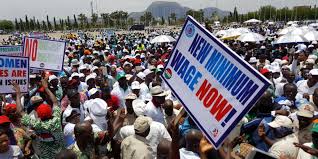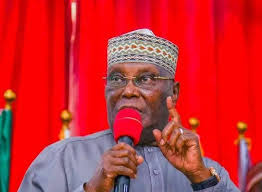Business
Bank Tasks Women On Financial Discipline
Chairman, First Bank of Nigeria (FBN), Mrs Ibukun Awosika, has urged Nigerian women to develop discipline in financial management by shunning extravagant and unnecessary spending.
Awosika made the remark in a capacity building programme entitled, ”FirstGem Empowerment Programme” organised by (FBN) on Saturday in Port Harcourt.
She observed that some women spent more money on expensive things like weave-ons, especially Brazilian hair; gold jewellery, clothing and others, urging them to cut down their spending and save money.
She said that women were assets to their households, adding, ”this is because they are able to stand in on the day of hardship,” she said.
She noted that some women could make money but did not understand the real management of money or have informed judgement on how to manage money.
Awosika said some women could not even make efforts to make money on their own but relaxed because they had rich husbands.
She said, ”the wife of a rich man is not a rich woman; she has a borrowed appearance.”
She explained that, that was why when the rich husband die, the wife if lucky not to be thrown away by her husband’s relatives, would not know how to manage the wealth left by her husband.
Awosika urged women to start wealth creation and shun being a wife who is a liability.
She said that they needed courage, resolve and strength of character as well as grit and grind in order to be relentless in their will to do their best in wealth creation..
”If you want to be successful in building wealth, you must build the right circle of friends, who can set goals and come back together to check the rate of achievement,” she said.
Also speaking, Mrs Subu Giwa-Amu of Brookstone Investment and Properties said that the steps along real estate investment journey was to aspire, set target, act, manage and diversify.
She urged women not to invest in any business they did not understand and should not always jump at the first offer given to them.
She also advised them not to wait for opportunities to come as there is a lot of opportunities around.
Giwa-Amu added, ”start now but respect certain life principles, do not cheat so that you will be successful.”
One of the participants, Mrs Meke Therazita, said that she liked the lectures and hoped that women would try their best to improve and be self-dependent on their business as well as help their husbands.
Another participant, Miss Juliana Masi described the lecture as having great impact, saying she learnt a lot from it.
She said that she had resolved to embark on real estate business.
According to her, as a woman there’s a strong need for me to create wealth for myself and my children and of course to support my husband, I will not like him to always give me what I want.
”I can be self-reliant, self-sustainable and FirstGem has given me a platform by building my capacity to do that and I am very grateful,” Masi said.
Business
Bayelsa Begins EIA On 60MW Power Plant

The Bayelsa Electricity Company Ltd, in collaboration with the Federal Ministry of Environment, on Friday, commenced the Environmental Impact Assessment (EIA) for the proposed 60-megawatt (MW) power plant.
The Tide’s source reports that the power plant project, led by the Bayelsa State Government, is in Elebele, on the outskirts of Yenagoa, the state capital.
The source also reports that the State Governor, Douye Diri, had announced plans to establish an independent power project to end the state’s reliance on the national grid and provide an uninterrupted power supply across Bayelsa.
The Director of Operations at the Bayelsa Electricity Company Ltd., Steve Bubagha Jnr., conducted the Minister of Environment, Balarabe Lawal, and his team around the project site.
Mr. Bubagha explained that the company planned to install a 60MW “plug and play” gas-fired turbine that would receive gas feed from the Oando gas manifold in Elebele.
He said the land area for the project is approximately 5.8 hectares, with 2.1 hectares currently being used.
“The Independent Power Plant is officially known as the ‘Yenagoa Power Project. This is a ‘Plug and Play’ Gas Turbine.
“What we mean by ‘plug and play’ is that the turbine is already set to be installed upon arrival from the manufacturers.
“We are only working on other components, so the turbine should be running in less than two years, or at most, in two years”, Bubagha explained.
Following the site visit, the environment minister, represented by Adimchinobi Okereke, emphasised that the purpose of the visit was to ensure the EIA process adhered to standard guidelines before granting final approval to the project.
He lauded the state government for initiating the project, noting that once completed, it would benefit Bayelsa and contribute to solving Nigeria’s power supply challenges.
Azibola Inegite, a professor and Dean of the Faculty of Science at Niger Delta University, and the EIA consultant for the project, assured that international best practices would be followed in conducting the EIA.
He emphasised that the EIA was essential for the successful execution of impactful land and environment-related projects.
On his part, the technical adviser on Print Media/Public Affairs to Governor Diri, Wisdom Ikuli, commended the Governor for his vision in executing the project.
He stated that the 60MW power plant would help reduce the state’s frequent power outages and boost business growth, thereby accelerating industrialisation.
A key part of the minister’s visit was the “Stakeholders Engagement Scoping Workshop for Environmental Impact Assessment of Proposed Gas Powered Plant and Gas Delivery Pipeline in Bayelsa State”.
The workshop brought together stakeholders from Elebele, whoch include the host community, and Kpansia, an impacted community in Yenagoa Local Government Area.
Business
Firm Unveils Solutions To Oil Logistics Challenges

A firm, Fortune Global Shipping and Logistics Limited, said it has concluded plans to unveil an excellent and cost-effective logistics solution for oil and gas logistics, project cargo, customs clearance, consolidation, and construction, among others, in Lagos State.
Announcing this in a statement on Friday, the company said the initiative would be unveiled during the 2025 Sub-Saharan Africa International Petroleum Exhibition and Conference.
It stated that the event is billed to take place in Lagos this week.
SAIPEC is an annual global event which focuses on harnessing a sustainable African energy industry through partnerships.
Fortune Global explained that the exhibition promises to engage with other key industry stakeholders, decision-makers, and experts across Sub-Saharan Africa’s energy supply and value chain.
“We invite you to experience more and find out about Fortune Global’s latest innovations in oil and gas logistics. Connect with Fortune Global Shipping and Logistics Limited at the Exhibition Booth N21, Eko Convention Centre, in Lagos”, the statement stated.
Business
Nigeria, Still Africa’s Largest Economy – World Bank

Nigeria remains the largest economy in Africa going by Gross Domestic Product (GDP), in spite of the challenges faced by yhe country’s private sector.
World Bank’s Country Director for Nigeria, Dr. Ndiame Diop, who confirmed this at the Country Private Sector Diagnostic (CPSD) and Stakeholder Engagement in Abuja, Friday, said while Nigeria receives far less Foreign Direct Investment (FDI) than its potential warrants, especially in comparison to countries like Indonesia and South Africa, it continues to hold its position as Africa’s biggest economy.
He said the CPSD report, set to be released in the coming weeks, will reveal the impact of private sector constraints on economic growth.
Diop noted that if targeted actions were taken to remove these obstacles, Nigeria’s economic potential would be significantly enhanced.
He explained that the current macroeconomic reforms have created a favourable environment for such changes.
He cited the country’s recent economic stabilization measures, particularly exchange rate market adjustments and improved access to foreign exchange, as critical steps that have already enhanced investment conditions.
The Country Director outlined four key sectors where strategic reforms could unlock massive investment and job creation.
He stayed that in the Information Communication Technology (ICT) sector, investment opportunities worth up to $4 billion could be realized, potentially creating more than 200,000 jobs.
In agribusiness, reforms could unlock $6 billion in investment and generate over 275,000 jobs.
The solar photovoltaic (PV) industry holds the potential for $8.5 billion in investment and more than 129,000 jobs, while the pharmaceutical sector could attract $1.6 billion and create more than 30,000 to 40,000 jobs.
For the ICT sector, he identified the high, unpredictable, and inconsistent right-of-way fees, levies, and informal charges, comprising 30 to 70 per cent of broadband rollout costs, as a major barrier.
According to him, addressing these regulatory inconsistencies would be a game-changer for broadband expansion.
He acknowledged that the National Economic Council has recognized this issue and that progress is being made through a World Bank-supported initiative.
He also noted challenges such as vandalism, limited financing for rural broadband expansion, and the need for competitive access to wholesale fiber.
Dr. Diop further noted that efforts are underway in collaboration with government agencies to resolve these issues, and the World Bank, the International Finance Corporation (IFC), and private investors are prepared to support broadband infrastructure development.
On solar power, Diop described Nigeria’s energy sector as difficult but noted that renewable energy access, particularly solar PV, has been a bright spot.
He explained that private sector investment in renewable energy has historically been hindered by high costs and unviable tariffs.
However, blended finance mechanisms supported by the World Bank and IFC have helped bridge this gap, making off-grid solutions more viable.
He noted the DES project, which aims to connect 17.5 million households and businesses to solar power, as evidence of growing private sector interest.
While the solar industry is expanding, he stressed that reforms to improve Nigeria’s grid electricity supply remain crucial for industrialization.
On her part, the Regional Director for Central Africa and Anglophone West Africa at the IFC, Dr. Dahlia Khalifa, stressed the importance of consistency in regulatory policies, particularly in customs duties and revenue agency fees.
She noted that unpredictability discourages private sector investment, as businesses rely on stable regulatory environments for strategic planning.
-

 Editorial4 days ago
Editorial4 days agoNew Federal Varsity In Ogoni
-

 News3 days ago
News3 days agoN70,000 Minimum Wage States’ Salaries Rise By 90% To N3.8trn
-

 Oil & Energy4 days ago
Oil & Energy4 days agoWAPCo Commences Four-Week Pipeline Maintenance
-

 Business4 days ago
Business4 days agoMAN Warns Against Electricity Tariff Hike
-

 News3 days ago
News3 days ago2025 Budgets: I Hope Snake, Monkey Won’t Swallow This One-Atiku
-

 Sports4 days ago
Sports4 days agoEaglesite Football Academy Targets Grassroots Dev
-

 News3 days ago
News3 days agoRelatives Of Deceased Pension Contributors Get N82bn –PenCom
-

 Niger Delta3 days ago
Niger Delta3 days agoPolice Arrest Boy, 13 For Using Gun To Threaten Colleagues

